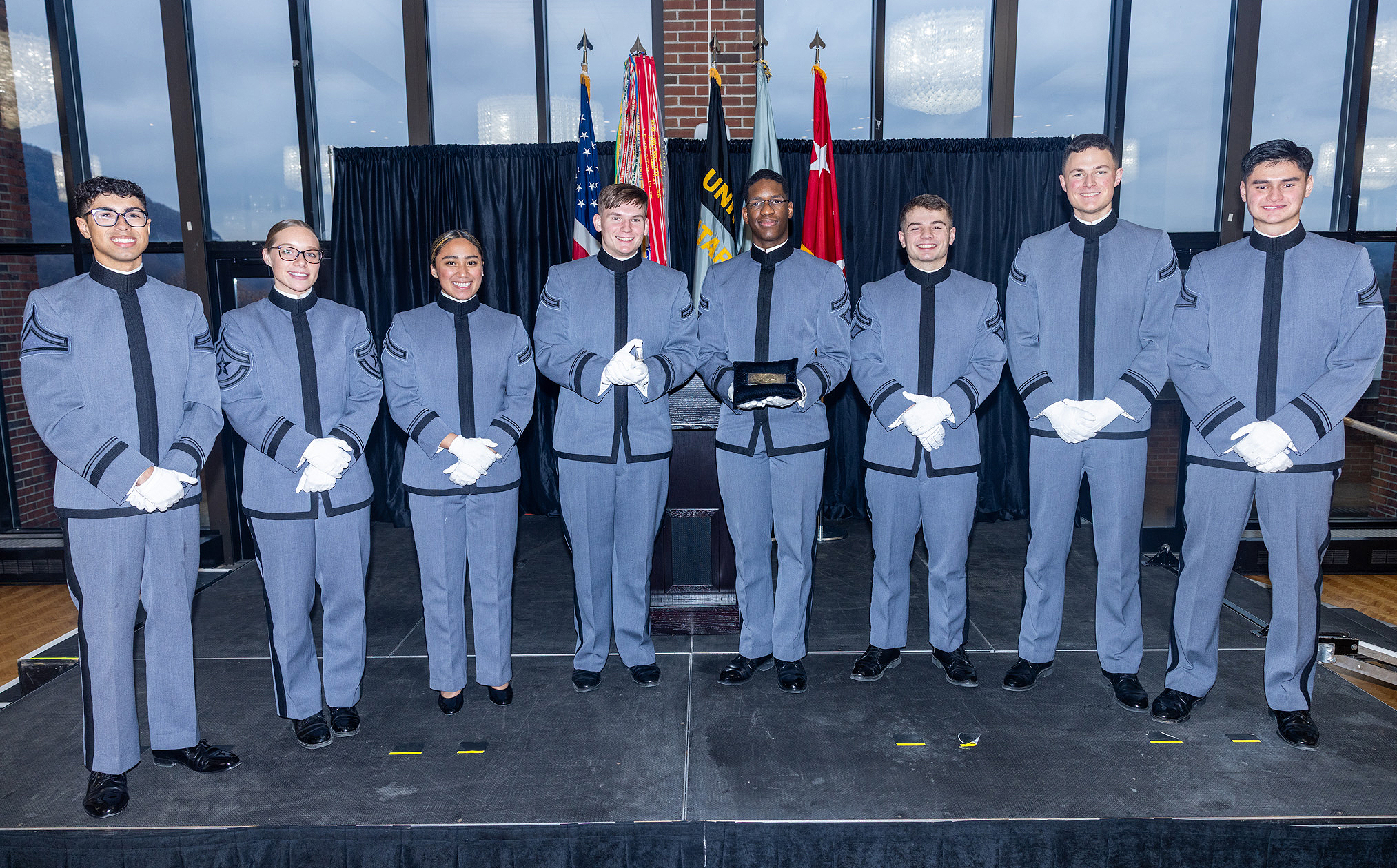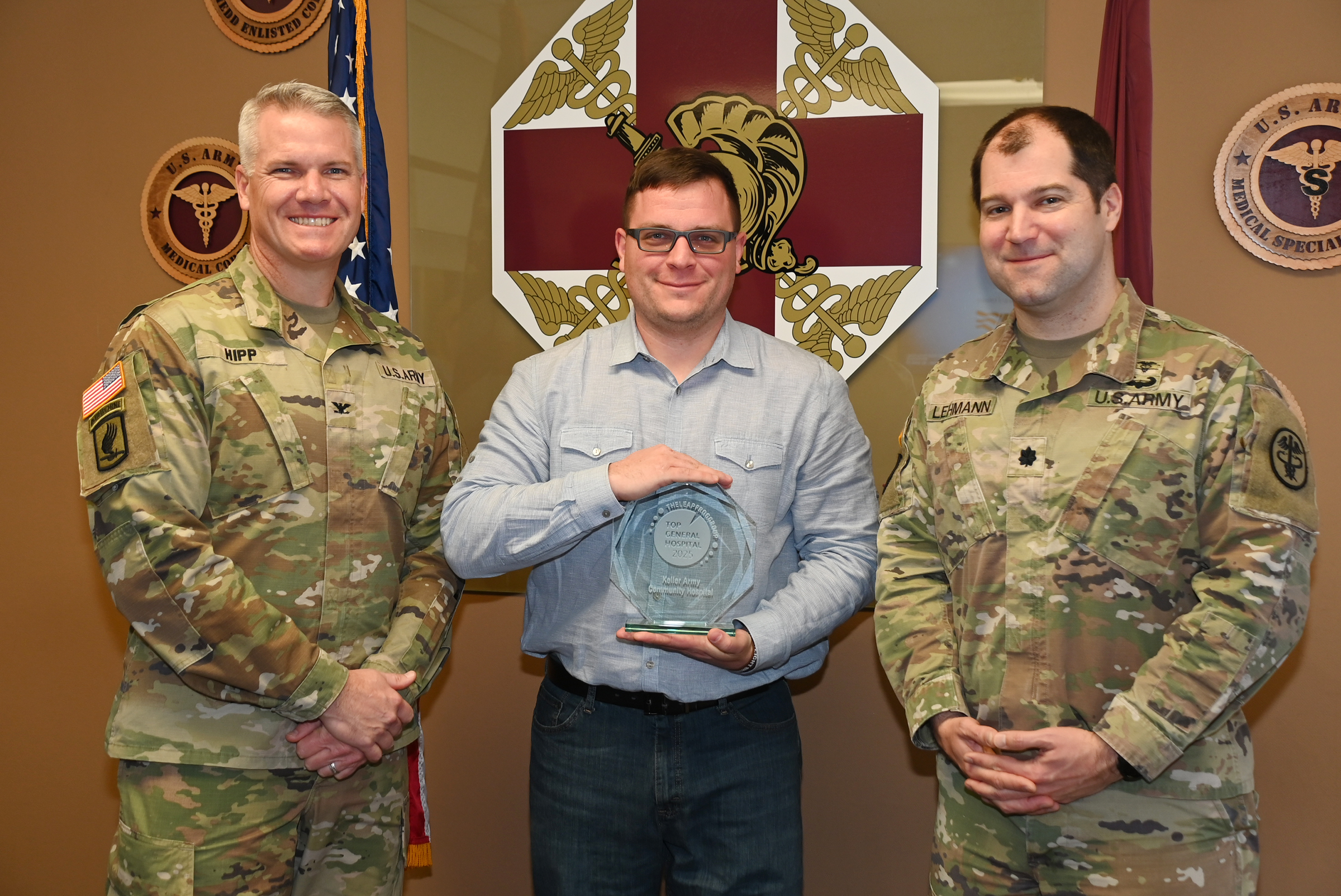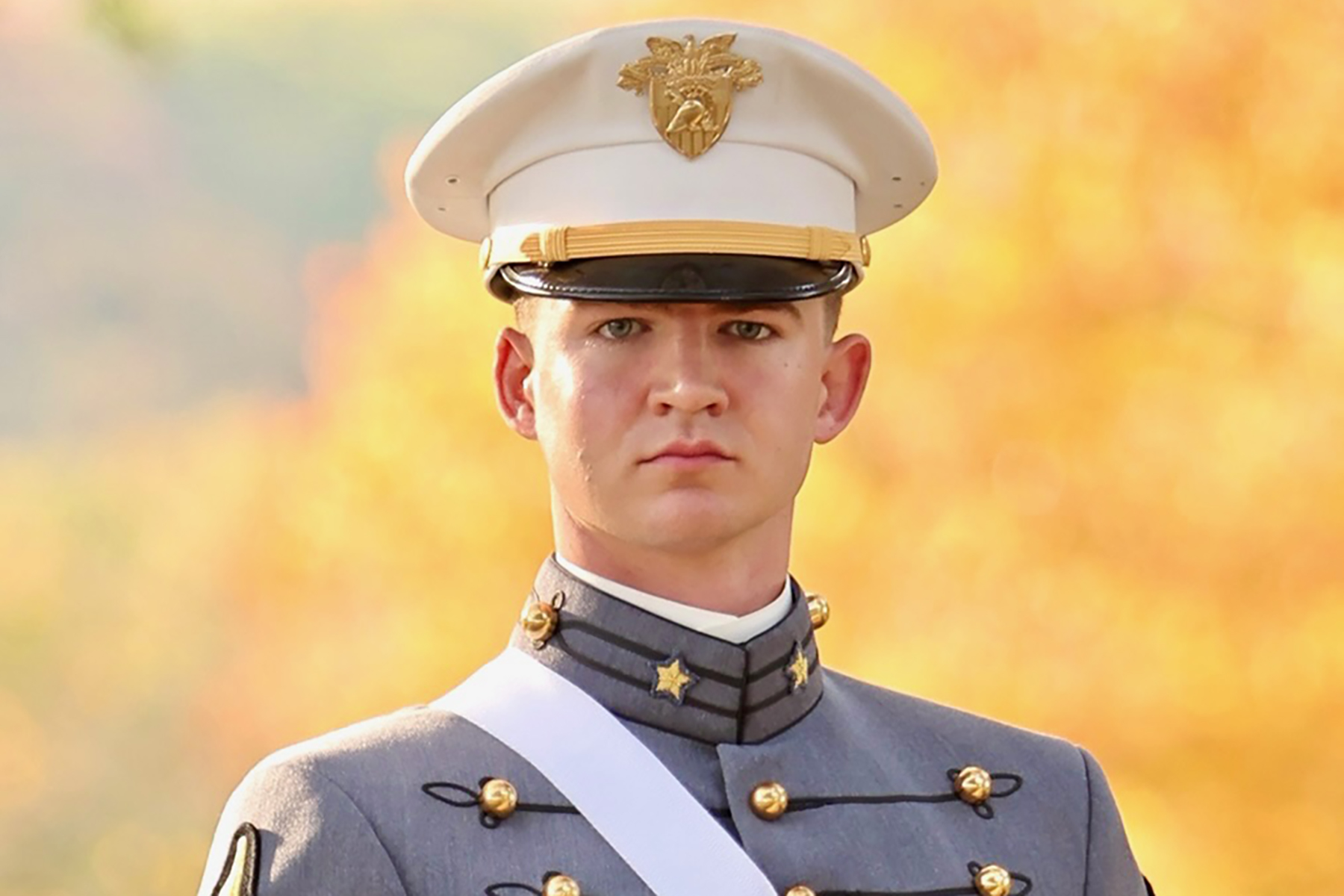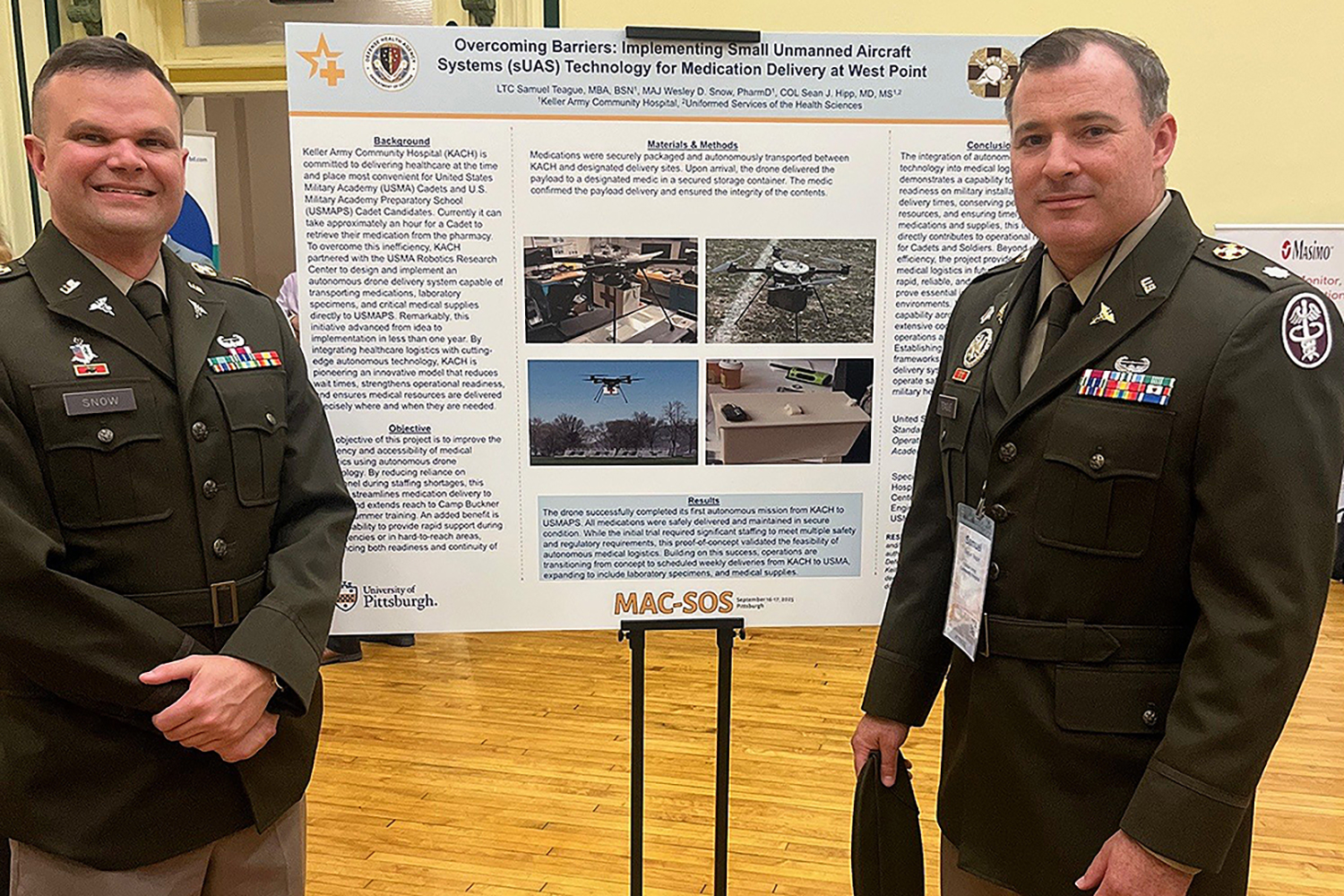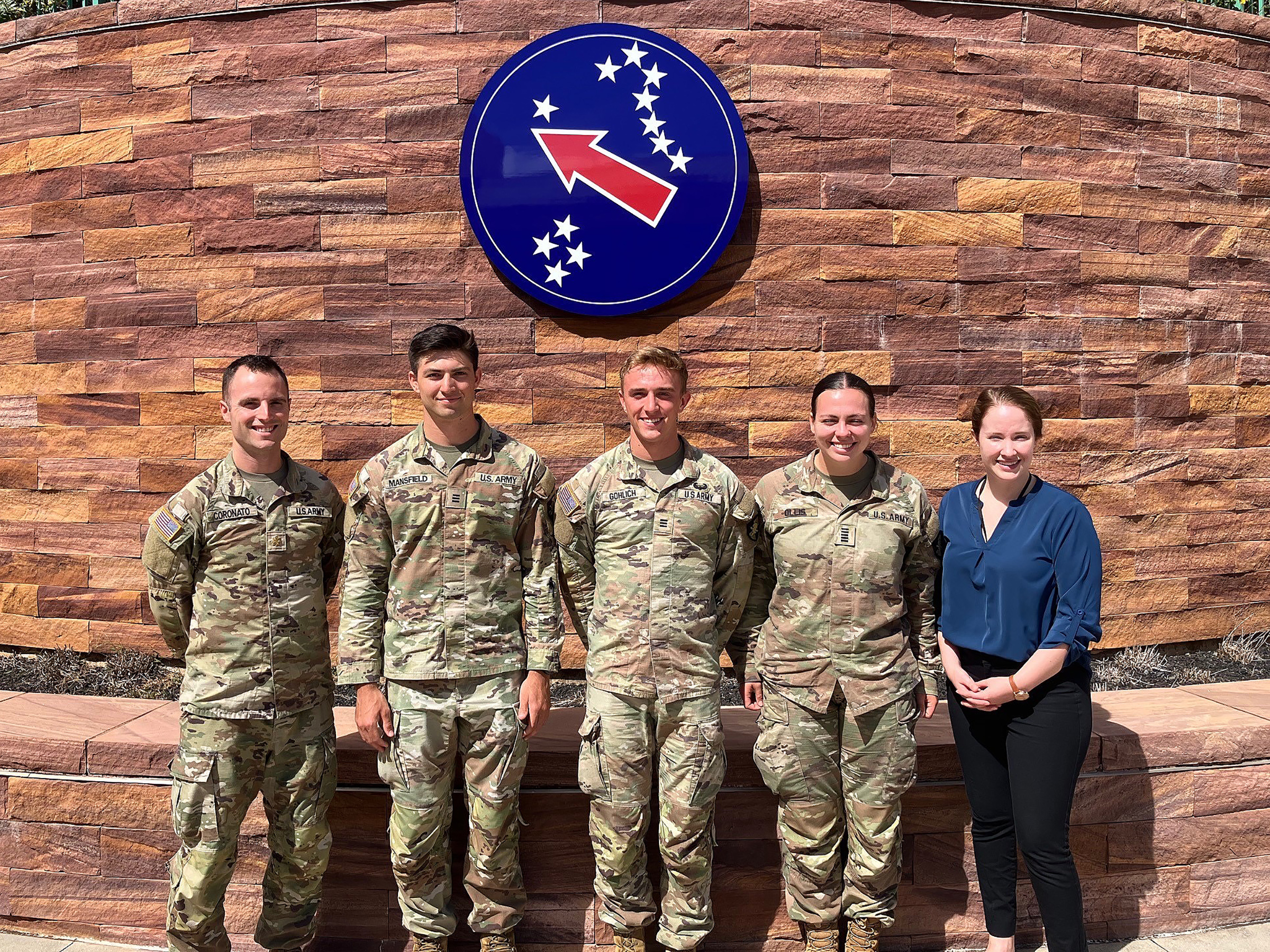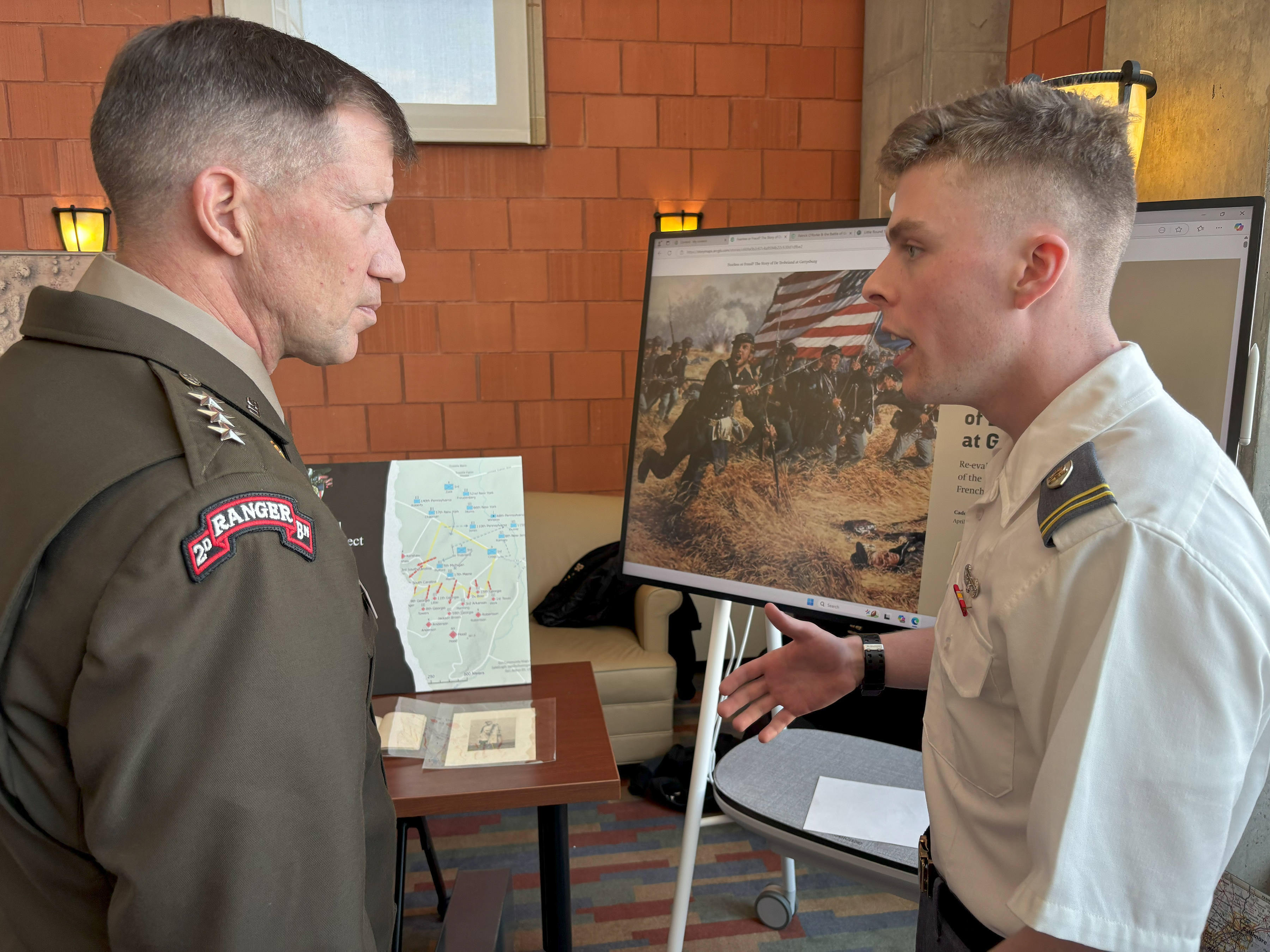Graduates donate rings, AOG hosts Class Ring Memorial Program for Class of 2027
As one of West Point’s most personal traditions, the Ring Melt allows current cadets to “grip hands” with previous generations of West Point graduates during a solemn, emotionally charged occasion that affirms the ideals of Duty, Honor, Country through the symbolism of the class ring....
Keller receives Leapfrog Group Top General Hospital award
Keller Army Community Hospital received the ‘Top General Hospital Award’ from The Leapfrog Group during the 2025 Leapfrog Annual Meeting & Awards Dinner, held Dec. 15, 2025, in National Harbor, Maryland. ...
Cadet Clemons earns Marshall Scholarship
Congratulations to the U.S. Military Academy's newest Marshall Scholar, Class of 2026 Cadet Mark Clemons, and his mentors!...
From leftovers to lifelines: Keller joins food donation program
Keller Army Community Hospital (KACH) is stepping up to address food insecurity in the Greater Hudson Valley with the launch of a comprehensive food donation program. ...
Integrating Drone Technology into Military Medicine: A collaboration between KACH and USMA
Keller Army Community Hospital (KACH) is actively working to integrate drone technology into military medical operations to enhance Soldier health and safety. ...
WPFD hosts open house, offers poster contest to students
The West Point Fire Department hosts a Fire Prevention Open House for the community from 4-6 p.m., Oct. 8, at 1204 Commissary Road (H Lot)....
AIAD exposes cadets to 2025-26 academic theme
This summer, West Point cadets stepped out of the classroom and into one of the world’s most strategically vital regions, the Indo-Pacific. Working alongside U.S. Army Pacific (USARPAC) units and partners across locations like South Korea, Japan, Singapore and Hawaii, cadets contributed to real-world military challenges, reinforcing the Academy’s 2025-26 academic theme: “Projecting Lethality: Addressing the Multidimensional Challenges in the Indo-Pacific.”...
United States Military Academy launches the Department of Chemical and Biological Science and Engineering
To meet the Army’s scientific and technical demands for future warfighting, the U.S. Military Academy is transforming the Department of Chemistry and Life Science into the Department of Chemical and Biological Science and Engineering (CBSE)....
West Point expands academic modernization with development of Department of History and War Studies
West Point is transforming the Department of History into the Department of History and War Studies, a department charged with producing graduates who understand both history and the past, present, and future of war, strategy, and warfare....
West Point Continues Academic Modernization to Meet Future Warfare Demands
As modern warfare grows more complex, West Point continues its transformation to develop leaders who can think, adapt, and innovate across all domains....
